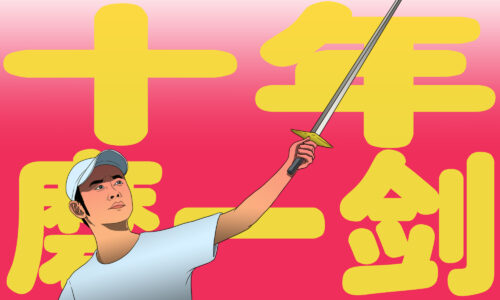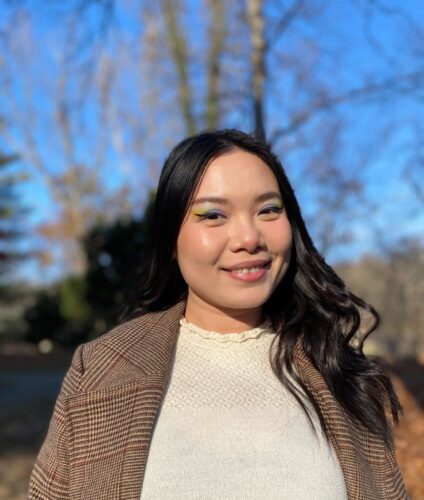Talking contemporary Chinese poetry with translator Martin Winter
"Poetry is many things at once. Poetry is where dichotomy dissolves: what you think you know transforms."

Martin Winter, a.k.a., 维马丁 Wéi Mǎdīng, is one of the most recognizable translators of contemporary Chinese poetry. Born in Vienna, he is also one of very few people in the world who translates literary Chinese into both English and German. He has translated about a dozen books, of both poetry and prose.
It was sheer persistence that got him recognized. In 2013, he began reading a column called the New Century Poetry Canon, abbreviated NPC (a play off the annual National People’s Congress political meeting), founded two years prior by the poet Yī Shā 伊沙. Winter engaged frequently, leaving comments and offering translations of the “colloquial poetry” that was being posted daily. Eventually, Yi Sha noticed, and the two began a correspondence.
Winter’s big break came a year later, in the fall of 2014, when Yi invited him to accompany him to Vermont as his translator for a residency sponsored by the Henry Luce Foundation. It was there that Winter shared with Yi a poem he had written in Chinese — his first poem written in Chinese, in 1998 when he was living in Chongqing — called “Newsstand.” Yi loved it, and a fruitful collaboration was born.
(The relationship fell apart last year. More on that in the section below.)
Also a poet himself, Winter has four published collections: two in (predominantly) German, one in English, and one in both Chinese and English (called Finally We Have Snow, originally published in China thanks to Yi Sha; 最终我们赢得了雪 zuìzhōng wǒmen yíngdéle xuě). He writes almost every day, and publishes much of his work and translations on his website. Topics over the years have included everything from traveling in northern Italy to the Nobel Peace Prize-winning author Liú Xiǎobō 刘晓波. He is often published on Chinese poetry platforms; most recently, his poem on March 14, written on the occasion of his son’s birthday, appeared in the journal Spoken Word Weekly (口语诗周刊 kǒuyǔ shī zhōukān).
Winter, who resides in Vienna, will fly to China on April 11 for the first time since 2019, for a three-month residency at Shangyuan Art Museum in Beijing.
As it was World Poetry Day earlier this week, I spoke to Winter, 56, about his work, his thoughts on poetry, and his very public fallout with Yi Sha last year.
Anthony Tao: How did you get into Chinese poetry?
Martin Winter: Via books by Alan Watts. With Zen poetry in there. From the 坛经 (tánjīng, The Platform Sutra of the Sixth Patriarch, i.e., Chan Buddhist scripture), 5th century common era. That story of Huìnéng 惠能, who was a kitchen boy in a monastery, who couldn’t read or write but became a Zen master, a 禅 (chán) patriarch.
I wrote a poem in Chinese in 1998. My first Chinese poem.
Newsstand
Late news!
Late news!
Morning reports,
evening reports.
Not that there’s no karma,
but time isn’t ripe.
报摊 bàotān
晚报!wǎnbào
晚报!wǎnbào
早有早报 zǎo yǒu zǎo bào
晚有晚报 wǎn yǒu wǎn bào
不是不报 bù shì bù bào
时候未到 shí hòu wèi dào
I heard “wanbao” (literally, “late paper”) on the streets each day, every afternoon, and thought, however early they begin to shout, the news is always late, and there is so much that doesn’t get reported.
Why Chinese? What was it about the language that attracted you?
The characters were something special, something different. There is something for you to try to draw, and you believe it will do something, like magic.
I understand you got into the Chinese poetry scene only after you left China [Winter was in Taiwan from 1988 to 1990, then the mainland from 1992 to 2008, in Shanghai, Wuhan, Chongqing, and Beijing]. How did that happen?
I knew some people and did some translations [when I lived in China], but I basically just wrote for myself. I was just living in Beijing and that was my main interest. And then my children were born [Maia in 2002, Leo in 2005] and I had this job translating into German and polishing for Chinese state media.
I was one of few people who translated in German, and I was interested in poetry. I started to be interested more in colloquial poetry: Shěn Hàobō 沈浩波, Yi Sha, Hán Dōng 韩东, and so on. That sort of quotidian stuff. Because my own poetry is very quotidian. When I started to write in Beijing, I wrote what I saw, what I experienced.
There weren’t a lot of people translating colloquial poetry. German translators were interested primarily in [Chinese poetry from] the 1980s, maybe early 1990s. And that was not colloquial poetry.
What aspect of contemporary Chinese poetry do you find most interesting?
The amazing diversity of the current poetry. That’s why I kept at translating the poems Yi Sha presented every day in the NPC (New Century Poetry Canon) series: so many different voices. Not just one kind, not only Yi Sha’s own circles. Many are not established poets. Some are. Some write good stuff for a while, then they stop.
Who do you enjoy reading these days?
Shen Haobo and most people promoted by [the literature platform] 磨铁 (mótiě). Jūn Ér 君儿 is my favorite female poet. I also still read Yi Sha’s NPC. Often I read whatever comes up on my WeChat.
Is there anything about Chinese poetry that distinguishes it from Western poetry?
There is no “Chinese poetry,” per se…There are traditions, but are they Chinese entirely, or something else? No, poetry is many things at once. Take the Zen poetry I mentioned, or the Buddhist classics written in Chinese. There is a notion that translation from Sanskrit influenced poetry forms, including classical Tang poetry. Poetry is where dichotomy dissolves. What you think you know transforms, has transformed. Something else is there.
Of course there are unique traditional things in Chinese poetry and related culture, e.g., the 24 [solar terms of the lunar year]. What was the last one? The awakening of insects, two weeks ago or more?
[“Awakening of insects” is the name of one of the solar terms, which began on March 6 this year and ended on March 20.]
I wrote a poem then, in English. Could hardly have written it in winter when there were no insects.
Writing
writing a poem
will make a wonder
a wonderful poem
if you are lucky
if your readers are
writing a poem
does not make you happy
does not make you wise
does not make you better
not in the long run
you’ll still be sick
you’ll still be sorry
you’ll still be stupid
you could still be evil
you could be disgusting
you can be outrageous
and you will still die
it’s a wonderful thing
like a fly
flies are everywhere
butterflies, moths
poems are fleeting
wonderful wings
Do you think poetry can speak to contemporary issues? In society, politics? Do you think it should?
Poetry can speak of and to contemporary issues, yes. Doesn’t have to explicitly, but should be allowed to.
You had a very public falling out with Yi Sha recently. How did that transpire?
Basically it went ugly on World Poetry Day 2022. He posted my translation of his poem for that occasion from 2019, very short thing. I think it was in the FAZ — Frankfurter Allgemeine Zeitung — the biggest German paper. (They like short poems in between articles.) Anyway, the poem went like, “The only poetry world news I have seen today is that Karadžić got life in jail.” [Radovan Karadžić was a Bosnian Serb politician who was convicted of genocide in 2016.] That’s it, very short.
And in 2022, Yi Sha wrote under my translation, “Today I say he was innocent!” Just like that, just because he blamed the U.S. for Russia invading Ukraine. So he looked at the 1990s again, and went on that way.
Mindless idiocy. Destroying his own poetry. Destroying the ambivalence present in every good poem. His timeline, his idiot shit to say, but he shouldn’t use my translation.
I said there was a big court case about Karadžić, very extensively documented. He just went on ranting, The West has killed more people than anyone, etc., etc. So I just wrote: 恶心 (ěxīn) — disgusting.
He ranted on. I wrote 恶心. And so on.
Next day he blocked me and cursed me on many platforms.
I should add that my temper is just as bad as his. Our poetry temperaments are similar, that’s why we had such a long and fruitful collaboration.
Despite this, you still translate his work?
I still translate NPC, mostly into German. I help other people. Usually there’s a person translating into English right away who’s part of these poetry circles (and there’s also a Korean translation right away, usually). The person who is translating into English, mostly they send it to me first because I have a lot of experience translating into English and German.
If there is a Yi Sha poem on NPC, and someone else translates it into English and shows it to me first, I may point out something. I can’t rule it out. But I don’t really feel like looking at his latest stuff anymore like I used to.
For people who don’t know as much about Chinese poetry, where would you recommend they start?
For contemporary Chinese poetry, I started with Běi Dǎo 北岛, Notes from the City of the Sun, translated by Bonnie S. McDougall. Bei Dao and Shū Tíng 舒婷 were the most famous poets of the 1980s. They are still very important, everyone knows them, those poems from the 1980s. Wáng Xiǎoní 王小妮, she still writes, she is great. Very earthly, quotidian, scary, powerful.
Read those three before anything else. Later, read Han Dong, Yú Jiān 于坚, etc. I would also recommend migrant workers’ poetry, and I can recommend following the MCLC Modern Chinese Literature and Culture blog for all sorts of news and stories from China.
Is there anything else you’d like to share?
At the visa office today they demanded a more personal invitation from China. I contacted the Shangyuan Art Museum and they sent a new invitation. It contained my passport number and birth date, as requested. And one more category:
Citizenship: Poet.
Isn’t this wonderful? The file was accepted.






